September 2019 National eResearch Newsletter
Welcome to the September 2019 AeRO eResearch Newsletter
Message from the AeRO CEO
It is now just a little more than a month until eResearch Australasia, where you can hear from wonderful speakers including Professor Svetha Venkatesh, Professor Keith McNeil, Dr Toni Collis, Rosie Hicks, Jakub Moscicki, and more! See https://conference.eresearch.edu.au/2019-invited-speakers/.
If you haven’t registered it’s not too late to do so, and make sure to put your name down for the breakfast presentation – a new addition to the week. You can find more information on the whole program at: https://conference.eresearch.edu.au/2019-program/.
Sam Moskwa, AeRO CEO.
 |
ENRICH your Bioinformatics: 16-Sep
Do you want to generate metrics to support your business case on the ROI of training? Interested in a data-driven approach to evaluating your workshops and training?
Join us for a 1-hour webinar at 17:30 AEST on 16-Sep to see how ELIXIR is using standardised, targeted surveys and an easy-to-use dashboard to address these questions. ELIXIR’s Training Impact Coordinator, Kim Gurwitz, will present how ELIXIR effectively gathers and communicates evaluative and impact data.
Become more data driven in your approach to evaluating training events/courses and showing longer-term impact of your training.
View the ELIXIR Dashboard at https://training-metrics-dev.elixir-europe.org/.
Register for the Webinar at https://uqz.zoom.us/webinar/register/WN_K8D1KX6UQF6N8kVkfY7D4g.
|
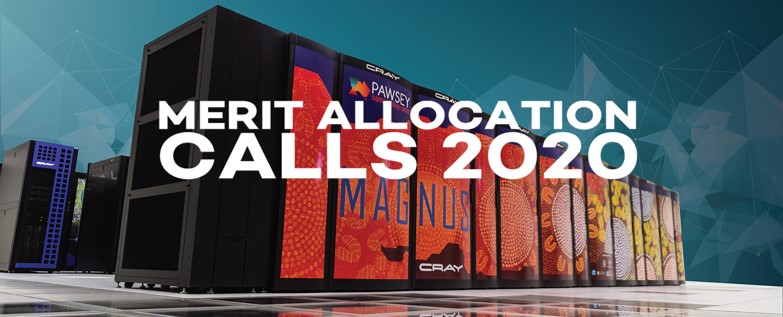 |
2020 Call for Allocations on Pawsey Supercomputers: due 20-Sep/4-Oct
Calls are open for supercomputing time on Magnus at the Pawsey Supercomputing Centre in 2020. Please apply if you are interested in using supercomputing resources for your meritorious research next year.
See https://support.pawsey.org.au/documentation/display/US/Application+Process. |
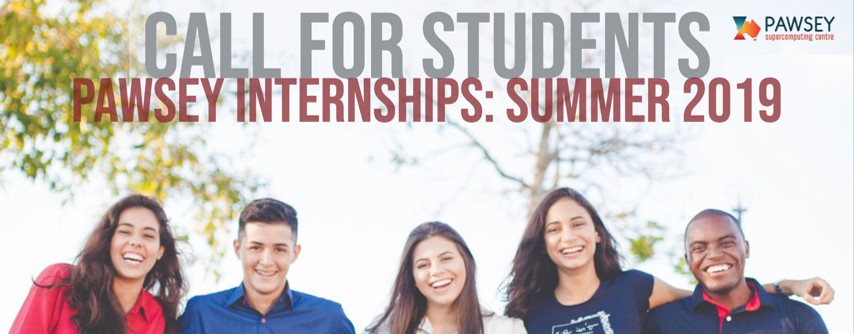 |
Pawsey Call for Interns: 20-Sep
Applications for the 2019-2020 Pawsey Supercomputing Centre Summer Internship program are now open. We invite students ready to challenge themselves and/or try something new to apply.
The goal of the Pawsey Summer Internship program is to enable undergraduate students to develop skills in computational science by providing the opportunity to be immersed in advanced computing research projects.
We will provide access to high-performance computing, visualization facilities, large-scale data storage and high-speed communications along with expert help to make the best use of technology.
Apply now via the CSIRO Jobs site at https://jobs.csiro.au/job/Perth%2C-WA-2019-Pawsey-Supercomputing-Centre-Summer-Internships/582726700/. Applications close 20 September 2019. |
 |
Survey: Disseminating Research in the 21st Century: 23-Sep
Are you using interactive platforms like R Shiny or Jupyter Notebooks to bring your research results to life? Or would you like to learn more? Researchers at UNSW need your input to better understand how the community can be supported to use these platforms.
View the demonstration app and complete the short survey at https://mark-hanly.shinyapps.io/disseminating-research/.
Note: the demonstration App contains interactive visualisations that are best viewed on a desktop or laptop. Please try to complete the survey by Monday, 23-Sep.
|
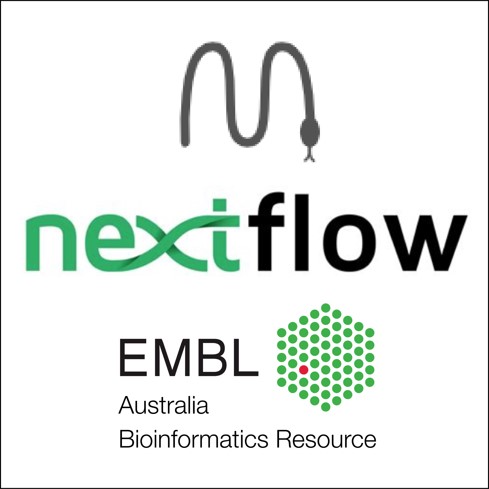 |
Implementing Scalable Bioinformatics Workflow Training: 25 to 26-Sep
The Australian BioCommons / EMBL-ABR is offering a two-day workshop – Wed 25 and Thur 26 September 12-4pm AEST.
Join a group in your home state that will link up with expert lead trainers online to hear presentations and undertake hands-on tutorials with the support of local trained facilitators.
The workshop will deal with the core concepts of both Snakemake & Nextflow, and will compare and contrast them.
Linux command line familiarity and experience with a scripting language is assumed.
The workshop is free, but places strictly limited.
To register and find the location closest to you: https://www.embl-abr.org.au/about/events/. |
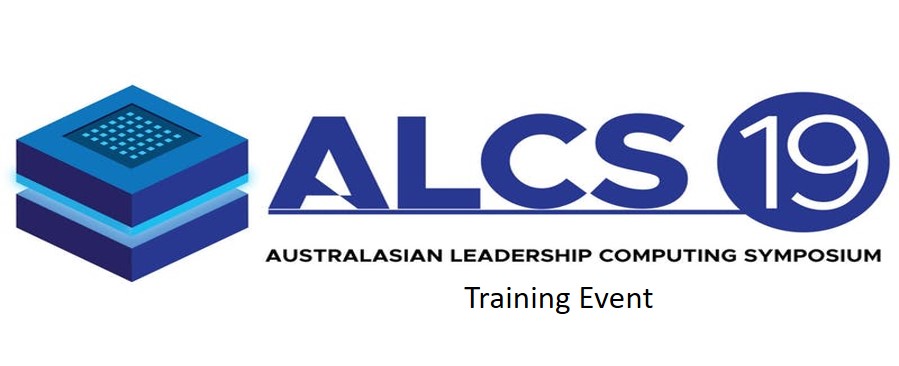 |
NCI Conference Participating Call: 30-Sep
Australasian Leadership Computing Symposium (ALCS) 6 to 8 Nov 19. Taking place from the 6th to the 8th of November at the Australian Academy of Science and The Australian National University in Canberra, ALCS 2019 will be Australasia’s research supercomputing users’ forum, as well as a flagship promotion of high-performance computing (HPC) and high-performance data (HPD) in Australasia.
Read more about the invited speakers at https://opus.nci.org.au/display/Help/Australasian+Leadership+Computing+Symposium+2019.
Register here https://alcs2019.eventbrite.com.au – Early bird closes 30/9/19! |
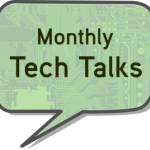 |
Tech Talk on Data Visualisation: 4-Oct
The Tech Talks are a monthly community gathering at virtual locations around the country, to showcase and discuss the technical side of Australia’s research infrastructure.
The next Tech Talk is scheduled for 3pm (AEST) Friday, 4-Oct-19. This will deal with Visualising Data. Details of this and other Tech Talks (past and future) can be seen at https://www.meetup.com/monthlytechtalk/.
Register at https://techtalkau-visualising-data.eventbrite.com.au. |
| Secure Your Ticket for the National ORCID Forum: 8-Oct
You are invited to attend the 2019 National Forum: “ORCID The Connected Researcher” in Brisbane on Tuesday 8 October 2019. The event will provide an opportunity to join ORCID Executive Director, Laure Haak, and learn how ORCID and other Persistent Identifiers make reporting and tracking research impact easier for organisations.
For more information and to secure your ticket visit: https://aaf.edu.au/news/events.html. |
|
 |
Data Sharing: Neuroscience, Microscopy and Experiments Symposium: 9-Oct
A combined symposium to plan how we enable interoperability and collaboration between researchers in a data-driven world – a national event to discuss and shape the data-driven science across instruments, experiments and neuroscience in Australia.
9-Oct-19 in Canberra.
For further information and registration: https://www.eventbrite.com.au/e/data-sharing-neuroscience-microscopy-and-experiments-symposium-tickets-71027441991.
|
 |
Big Data in the Humanities Symposium: 17-Oct
The team from the Humanities, Arts and Social Sciences Data Enhanced Virtual Laboratory (HASS DEVL), aka Tinker, is excited to announce the forthcoming ‘Big Data in the Humanities’ symposium in Canberra on Thursday 17th October.
‘Big Data in the Humanities’ is an opportunity to bring together researchers, research data specialists, GLAM experts, eResearch specialists and other practitioners to discuss and consider some of the ‘big’ questions and issues around humanities and collections data.
It is a free event, but registration is required.
Please register via Eventbrite: https://www.eventbrite.com.au/e/big-data-in-the-humanities-a-symposium-tickets-71609380585.
Further information here: https://tinker.edu.au/big-data-in-the-humanities-a-symposium/. |
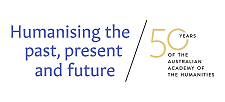 |
Humanities, Arts & Social Sciences LIEF Workshop: 18-Oct
The Australian Academy of Humanities, Academy of Social Sciences in Australia, the Australasian Council of Deans of Arts, Social Sciences and Humanities and the Australian Research Council (ARC) are convening a one-day workshop on the Linkage Infrastructure, Equipment and Facilities (LIEF) scheme for humanities and social sciences (HASS) researchers.
9:30am–4:00pm Friday, 18 October 2019, Canberra.
This is a free event, open to researchers, research support staff, eResearch practitioners and members of the broader infrastructure community. More details are available on the Academy’s website. We encourage you to register early as places are limited: https://www.humanities.org.au/events/arcleif/?page=CiviCRM&q=civicrm%2Fevent%2Fregister&id=240&reset=1. |
 |
NCI’s Training Event: 5-Nov
Before the 2019 Australasian Leadership Computing Symposium (ALCS), there will be FREE training sessions in both HPC and HPD on Tuesday 5 November.
Register your interest here https://alcs2019.eventbrite.com.au – you can select only the free Training Day ticket, or add the Training Day to your ALCS ticket purchase. |
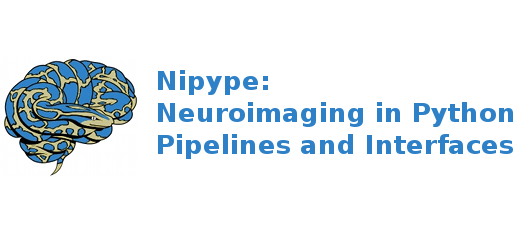 |
Automating Neuroimaging Analysis Workflows: 15-Nov
Please join us for a one day free workshop: Automating neuroimaging analysis workflows with Nipype, Arcana and Banana.
Date: 15 November, 2019 (after the VBIC Annual Network Meeting) Duration: 1 day (09:30 – 17:00) Location: Melbourne
The workshop will show how to wrap neuroimaging tools within consistent interfaces and link them together into robust workflows using the Nipype Python package.
A full description and pre-requisites at the link: https://characterisation-virtual-laboratory.github.io/CVL_Community/workflows_proposal/.
|
 |
Sydney Pawsey User Forum: 27-Nov
Pawsey staff is taking the opportunity to discuss your experiences using Pawsey services.
Do not wait until the end of year survey, join us to have your say: what we are doing well and where we can improve?
Your feedback can cover all aspects of interactions with the Pawsey Supercomputing Centre. This may include the full project lifecycle of application, allocation management, usage, and reporting for the various supercomputing, data, cloud and visualisation systems that Pawsey operates. This is also your chance to help us shape the future of HPC for Australia’s researchers.
Visit this page to register: https://pawsey.org.au/event/pawsey-user-forum-sydney-27th-november-2019/.
|
| Sydney Training on Pawsey: 27/28-Nov
Pawsey Training is designed to assist researchers to maximise the benefit of using the supercomputers and to explain the possibilities and applications of these powerful tools, to anyone with an interest in them.
In November, Pawsey will be running supercomputing, cloud and Unix training in Sydney. For more information and register, visit this page https://pawsey.org.au/event/pawsey-training-sydney-27-28-november-2019/.
|
|
| Trove Introduces New Version of Its API
Trove has recently introduced version 2.1 of its API. The What’s Changed PDF details the new features added and includes links to more instructions on getting the most out of them: see https://help.nla.gov.au/sites/default/files/API%20V2.1%20-%20Whats%20Changed%20-%20Full%20Text%20Search%20Release.pdf.
A brief overview of the changes:
News on decommissioning version 1 of the Trove API – this is set for November 2019: pleased switch over before then
|
|
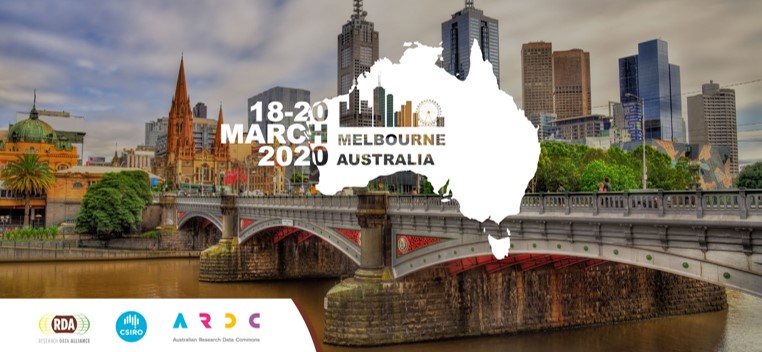 |
RDA Plenary Melbourne March 2020
For the first time, a Research Data Alliance (RDA) Plenary will be held in Australia – the 15th RDA Plenary Meeting will take place in Melbourne from 18 to 20 March 2020 in conjunction with CSIRO’s C3DIS.
The Plenary will be hosted by CSIRO and supported by the Australian Research Data Commons and the RDA. This meeting offers Australian and regional researchers and data professionals an opportunity to influence and drive the development of solutions to data problems and engage with the international experts.
See https://www.rd-alliance.org/plenaries/rda-15th-plenary-meeting-australia.
|
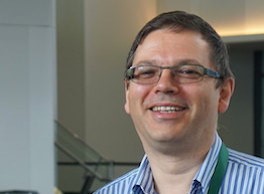 |
QCIF CEO Phil Gurney Steps Down
Dr Phil Gurney has decided to stand down as QCIF’s CEO due to family commitments in Melbourne.
QCIF eResearch Services Manager Nigel Ward will be acting CEO until a replacement is found.
In announcing his decision to leave, Phil said that “while family will always be my number one commitment, my biggest regret will be to leave such a dedicated and enthusiastic team, here at QCIF.”
Read more: https://www.qcif.edu.au/index.php/news/597-phil-gurney-steps-down-as-qcif-ceo.
|
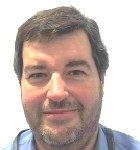 |
QCIF Announces New QUT eResearch Analyst
Craig Windell has joined QCIF as an eResearch Analyst based at QUT’s Gardens Point Campus.
Craig, who has an engineering degree from QUT, is an IT professional with many years of experience at QUT assisting and supporting researchers to understand and use IT systems.
He has performed a number of IT roles from desktop support, system administrating and system design.
Read more: https://www.qcif.edu.au/index.php/news/598-qcif-announces-new-qut-eresearch-analyst.
|
 |
UQ’s New Framework to Simplify Digital Instrument-based Research
The University of Queensland’s Research Computing Centre has developed a new framework to make it easier for researchers who use digital instruments to manage and analyse their data.
The new framework, CAMERA, will facilitate the CApture, ManagEment, stoRage and Analysis of data from microscopes, scanners and sequencers.
CAMERA supports a complete life cycle for instrument-gathered data, seamlessly rendering it on a range of instruments, cloud computers, desktops and high-performance computers.
Read more: https://rcc.uq.edu.au/article/2019/09/rccs-new-framework-simplify-digital-instrument-based-research.
|
| NCI’s Fortnightly Data Webinar Series
NCI is offering fortnightly Data Munching webinars, starting on the 10th of September.
The aim? A bite of data every other Tuesday, covering aspects of NCI’s data services, tools and collections to promote our data usages, application and use cases. It is also a forum to actively engage with our research community.
Please see the NCI Data Webinar page for detailed information, at https://opus.nci.org.au/display/Help/NCI+Data+Webinar.
You need to register in order to get the zoom meeting information and confirmation before the webinar, here: https://anu.zoom.us/webinar/register/WN_r61cvTvvTG-c5kULHSgm0w.
|
|
 |
Data Analysis in CloudStor: SWAN/Jupyter Released
AARNet is helping a wide range of researchers perform data analysis in the cloud by adding SWAN, a Service for Web-based Analysis, to the AARNet CloudStor platform. SWAN was developed by CERN, the European Organization for Nuclear Research, one of the world’s largest and most respected centres for scientific research, and an AARNet partner in the development of CloudStor.
SWAN provides Jupyter Notebooks, which allows researchers using a web browser to perform interactive analysis of their data using cloud computing services operated by AARNet, and without having to install any software.
See https://news.aarnet.edu.au/data-analysis-in-cloudstor-swan-is-ready-for-researchers/.
|
| eResearch-NZ Registration has Opened
Entitled “Exploring ideas & innovations around data and digital tools in research”, and hosted in Dunedin from 12-14 February 2020, eResearch NZ will bring together researchers across disciplines and communities for an exciting and insightful three day programme.
Submissions welcomed in a range of fields, including AgriTech, Biomedical, Environment, Genomics, Space, Energy Technology, Urban Systems, and more.
More information: https://www.eresearchnz2020.org.nz/.
|
|
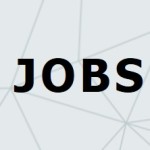 |
eResearch Jobs
AeRO provides details of the latest eResearch job opportunities in the sector. Jobs are posted immediately to https://twitter.com/AeRO_eResearch, and the website at http://aero.edu.au/jobs/ is also updated. This is a free service for the whole eResearch community – to advertise a position, simply email loretta@aero.edu.au. Here’s a sample of current vacancies: Enterprise Data Warehouse Manager, eResearch Platform and Services Engineer, Visualisation Technology Specialist, Research Data Librarian, Supercomputing Applications Specialist, Cybersecurity Program Director, Senior Linux Systems Administrator, Bioinformatics and IT Manager, Big Data Cloud Logging Engineer, STEM Policy Analysts, Multiple eResearch Analyst Positions. |
Contributions
This newsletter is based on contributions provided by members of the eResearch community, and draws on news articles and newsletters published across the sector. The Newsletter is published around the 16th of each month.
Please send any contributions (max. 100 words, plus a link and image) or pointers to any other relevant articles or newsletters to editor@aero.edu.au
Archives of these Newsletters are held at http://aero.edu.au/newsletters/.
Click HERE to add yourself to the eResearch Mailing List.
Thanks,
—AeRO Newsletter Editor

